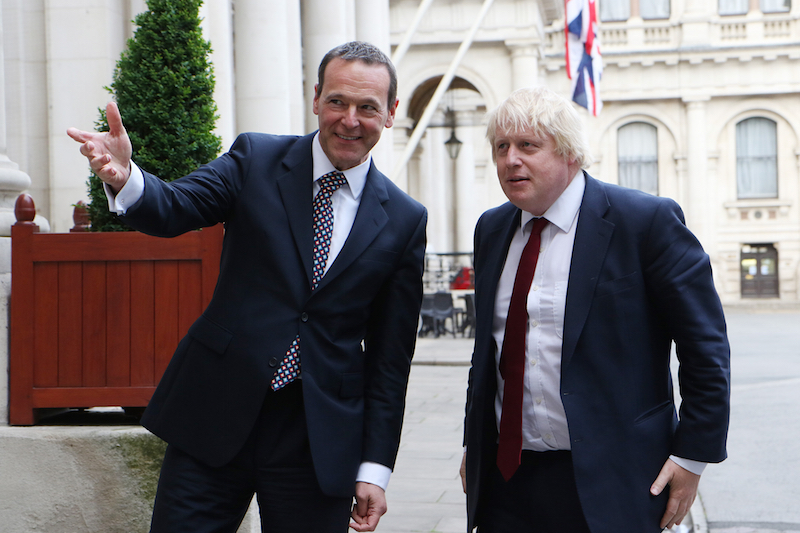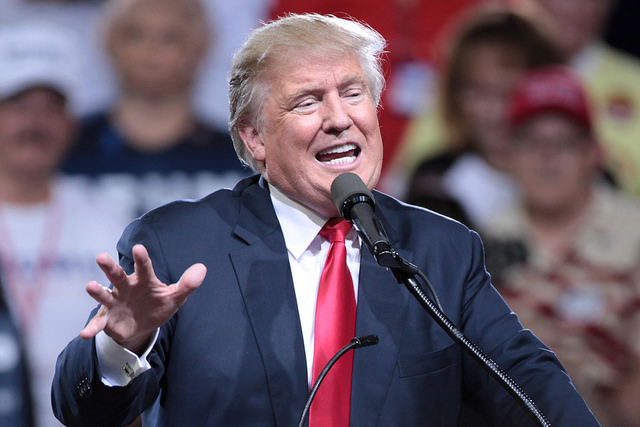Britons voted for their country to leave the EU in last month’s historic referendum, with 52% of voters in favour of “Brexit.” In the fallout of the referendum, there’s been all but an upheaval in British politics: major figures such as Nigel Farage and David Cameron have resigned from their posts, Theresa May just became the new PM, and worries about a post-Brexit recession are ever-looming.
With all the uncertainty that’s arisen in the Brexit referendum’s aftermath, for this week’s Editors’ Forum, we asked our Program Editors at NAOC the following: what’s next?
A Captain Should Go Down with His Ship, Right?
Marissa Young, Program Editor, Women in Security
In post Brexit UK, it seems politicians were unprepared for the drastic decision to leave the EU in favour of isolationism. But what citizens didn’t expect was for a monumental crisis of leadership within the political parties. The day after the election, PM David Cameron officially announced his resignation from the Tories. In his speech, Cameron said, “ I will do everything I can as Prime Minister to steady the ship over the coming weeks and months but I do not think it would be right for me to try to be the captain that steers our country to its next destination.”
Once Cameron resigned, most expected Vote Leave enthusiast Boris Johnson to be the frontrunner for the Tory successor. But Johnson shocked Britons by declaring he would not be seeking party leadership. He said, “Having consulted colleagues and in view of the circumstances in Parliament, I have concluded that person cannot be me.” By backing away from Tory leadership, Johnson shown himself to be a coward in the face of uncertainty.
Johnson should be responsible for taking the reigns of the Tory party and held liable for the fall-out of the referendum result. He spearheaded this movement, which, against most odds, won. More importantly, Brexit will become a reality for UK citizens, with a direct impact on their everyday lives.
Johnson hasn’t seemed to care, managing to have fractured the Tory party without taking responsibility. But now that Theresa May’s become PM and appointed him Foreign Secretary, he’s not going to get away with it. A Captain goes down with his ship.
EU to Scotland: “You Can’t Sit with Us.”
Idil Alcinkaya, Program Editor, Emerging Security
The Scottish have long been oriented toward Europe, with ties to France dating back to the “auld alliance” in 1295. Even with the 1707 Act of Union that merged Scotland and England into Great Britain, Scotland has maintained its own systems of law, church, and education. It’s sought to promote Scottish views on European politics and to ensure its voice is heard in the EU.
That 62 percent of Scots voted to remain in the EU is, therefore, unsurprising. In fact, it’s created momentum for a second independence referendum. In the Brexit referendum, democratic decision-making let down Scotland. As UK First Minister Nicola Sturgeon argued, it is “democratically unacceptable” that Scotland should be forced to leave the EU.
But whether Scotland can remain in the EU depends on the stance its leaders decide to take on the terms of the UK’s departure. With leader of the French National Front Marine Le Pen similarly encouraging France to also leave the EU, with Russia overjoyed that Brexit has undermined the collective force of Western governments, and with Spain’s autonomous regions eyeing full secession, EU leaders ought to make clear the repercussions of leaving.
Scotland’s chances of negotiating to remain in the EU seem to be slim to none. Yet Scotland’s application for EU membership could be fast-tracked, given it has already a framework for implementing EU laws and committing itself to EU principles.
The future of UK remains uncertain. And Scotland’s attempt to becoming a part of the EU will look like a political popularity contest, hoping to sit at the cool kids’ table.
London Bridge is Falling Down.
Lira Loloçi, Program Editor, Global Horizons
In economic terms, the outcome of the Brexit referendum has stalled Britain’s growth. Over the next few years, uncertainty will increase the cost of corporate debt, at least until the terms of negotiation over Britain’s departure are finalized.
Britain’s departure from the EU will be a hit nonetheless to investment and consumption. Looser regulation will allow for some corporate savings, while greater controls on unskilled EU immigration will slow population growth. Though the decision to leave will ultimately drag down Britain’s economy, some of the costs could be avoided through trade deals between the UK and the EU or US.
Currently, half of the electorate is disappointed with the vote for “Brexit.” Some have even called for a second referendum. After all, the pound’s rapid drop in value in less than 24 hours led to a virtual pay-cut for the national workforce. Many will soon be angry when they see their promises will have yet to be realized within their lifetime.
Leading Brexiters such as Boris Johnson or Nigel Farage claimed Britain could retain access to the EU single market while securing limits on migration, similar to what the Norwegian government had negotiated previously. But that’s an illusion. The EU’s 27 other member states will not let Britain cherry-pick the terms of negotiation.
Photo: Foreign Secretary Boris Johnson and Permanent Under-Secretary at Foreign and Commonwealth Office and Head of Diplomatic Service, Sir Simon McDonald (2016), by Foreign and Commonwealth Office via Flickr. Licensed under CC BY 2.0.
Disclaimer: Any views or opinions expressed in articles are solely those of the authors and do not necessarily represent the views of the NATO Association of Canada.




